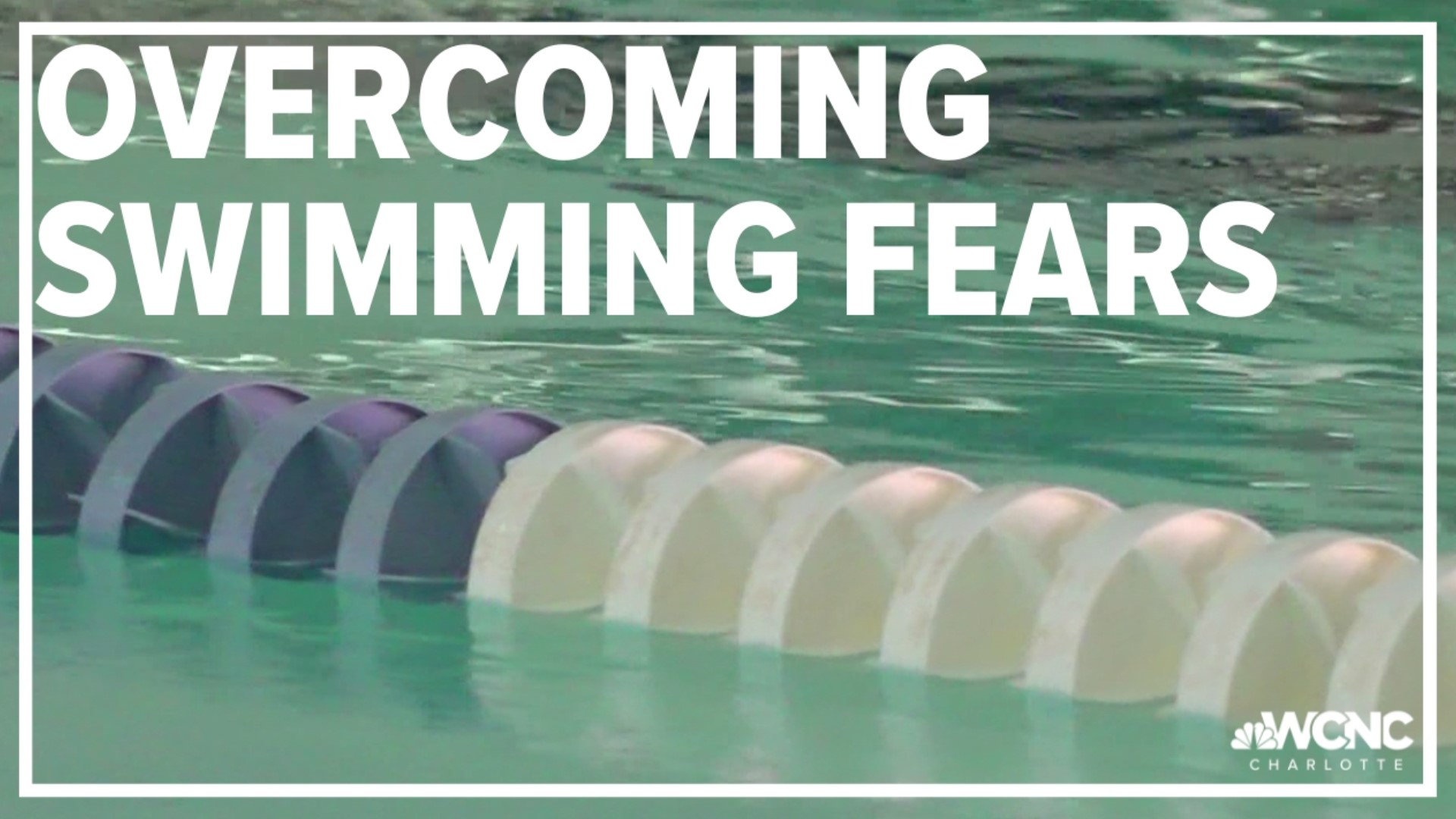CHARLOTTE, N.C. — There isn’t much swimming happening in this weather, but it could be the perfect time to learn at your local YMCA.
The American Red Cross says about 80% of adults claim to know how to be able to swim but more than half also admit they’d fail a basic swimming test.
A pilot program at the YMCA of Greater Charlotte is helping people with traumatic swimming experiences overcome their fears.
"I never had swimming lessons in my life before," said Teri Young. "I'm 73 now and I feel only comfortable when I stepped into a pool that I can touch the ground."
Every stroke, every kick, and every breath is an act of courage for Young.
Years ago, she couldn’t imagine swimming by herself in a pool, after a dive into an unmarked, unsupervised hotel pool in Russia.
"I jumped in and I had a near-drowning experience," Young said.
According to the CDC, every day, approximately 10 people die due to unintentional drowning. That number doubles for near drownings with an average of 22 per day.
"Mecklenburg County leads the number of drownings in the state of North Carolina, unfortunately," Cindy Terry, YMCA Swim Lesson Coordinator at Johnston and Simmons YMCA. "So it is very important that everyone learn how to swim, but not only learn how to swim, but how to be safe around water."
Young is a part of an inaugural class of swimmers at the YMCA working through their fear of swimming.
In 2021, the YMCA of Greater Charlotte applied and was chosen as one of just 10 YMCAs nationwide to receive a grant to participate in YMCA of the USA’s Aquatics Swim Model Pilot Program.
"We were able to teach 50 teens and adults total and our YMCA here," Terry said. "And that encompasses any type of trauma that they may have received as a child, any type of fear of water, not having access, any type of body image issues.
The program focus on developing a teaching curriculum specifically for teens and adults who have traumatic experiences or extreme fears related to water.
"We met with Y-USA and we critiqued the program, we gave feedback," Terry said.
The lessons learned from the staff at Johnston and Simmons YMCAs will help form the curriculum that will be released nationwide in 2023.
Due to this traumatic experience, she stayed away from water for many years. However, as she entered her 70s, she realized the benefits of using water for exercise and wanted to gain the courage to get back into a pool.
Teresa can now swim more than the length of the pool without stopping, doggy paddle, float, and swim in deep water.
"I love this experience and I want to spread the word so everybody else can be not afraid to get into the water," Young said.
Swim lessons for all age groups are available at select YMCAs year-round.

